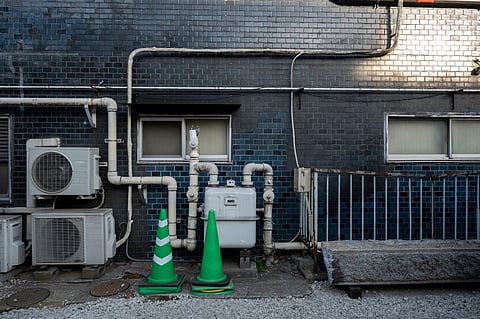HVAC: Upgrading Your System for Better Performance
Your home's HVAC system is an essential element in your house concerning comfort and overall wellness. It helps keep you cool during summer and warm during winter, aside from helping to ensure indoor air quality, which even affects your energy bills. However, like every other mechanical system, your HVAC unit will ultimately wear out and hence needs upgradations or replacement.
If you are looking for Toronto furnace replace or upgrade other parts of your HVAC system, this guide will help you through the process and make it easier to decide.
Why Upgrade Your HVAC System?
Improved Efficiency
Older systems are less energy efficient and hence tend to make you spend more on energy. You will cut so much money by upgrading to a more recent efficient model that reduces the amount of energy used.
Better Comfort
With the maintenance and upgrading of the HVAC system, you will enjoy uniform comfort all over your house, regardless of the season. You will have an evenly heated and cooled house without hot or cold spots.
Better Quality of Indoor Air
Most modern HVAC systems have advanced filtration systems that remove many pollutants, allergens, and other airborne harmful agents in the indoor air, thus improving the indoor air quality. This is very helpful for a person who has allergies or a medical condition that affects his or her respiratory system.
Key Components to Consider Upgrading
Furnace Replacement
A furnace is at the end of its life, approximately 15-20 years old, and it has become a problem in that it is constantly breaking down or just isn't heating enough. Furnaces today are miles more efficient than those made years ago. So, expect your heating bill to be quite a bit less expensive.
In addition, well-designed furnaces are quieter and have fewer breakdowns, which gives more comfort and peace of mind. When shopping for a new one, ensure that the annual fuel utilization efficiency rating is very high, referring to how much of the fuel converted into heat the furnace can convert.
Air Conditioner Replacement
Many benefits come from upgrading your air conditioner, such as better cooling performance and energy consumption, as well as fresher indoor air quality. With more old air conditioning units, cooling may not work properly during peak summer months and result in an uncomfortable house or high energy expenditure.
Upgrading from your old one to a more efficient new one will help reduce your energy expenses and cool better than the previous one. Models with the latest features include variable speed compressors, operating at different speeds to maintain stable temperatures and improve energy use efficiency.
Thermostat Upgrade
Smart thermostats have really transformed home comfort and energy efficiency. They go way beyond traditional thermostats because smart thermostats provide such additional features as programmable schedules, remote access control, and learning your habits for maximum consumption of energy.
You can adjust the temperature through your smartphone or other devices. You can develop personalized schedules depending on what you are doing throughout the day, and it may even give you notifications on possible ways of saving energy. Some smart thermostats can even learn your habits and adjust the temperature to match, maximizing comfort and minimizing waste.
Improvements in Ductwork
Ductwork is the unsung hero of your HVAC system. Air can easily leak through poor or leaky ducts and seriously diminish airflow, meaning uneven temperatures within your home as well as energy consumption.
This is because when air leaks within the ducts, it takes conditioned air outside into unconditioned spaces such as attics or crawl spaces and wastes energy in return for increasing the heating and cooling costs. Sealing and insulating your ducts can significantly improve airflow and reduce energy conditions that flow into the areas of your home that need the conditioning.
Air Filter Upgrades
Upgrading your air filters can improve the quality of the air inside your home. Standard filters remove some of the larger particles but are not very effective at picking up the smaller particles, including dust mites, pollen, mold spores, and other allergens.
On the other hand, high-efficiency particulate air filters capture much higher percentages of these smaller particles, thus making indoor air significantly better. HEPA filters are very helpful to individuals suffering from allergies, asthma, or other respiratory diseases.
Conclusion
This will mean investing in the comfort of your home, energy efficiency, and even value. Whenever you are looking to upgrade your HVAC system, be cautious and look into your needs and what's available so that you can upgrade accordingly and thereby enjoy the good things for many years.
Inspired by what you read?
Get more stories like this—plus exclusive guides and resident recommendations—delivered to your inbox. Subscribe to our exclusive newsletter
Resident may include affiliate links or sponsored content in our features. These partnerships support our publication and allow us to continue sharing stories and recommendations with our readers.

